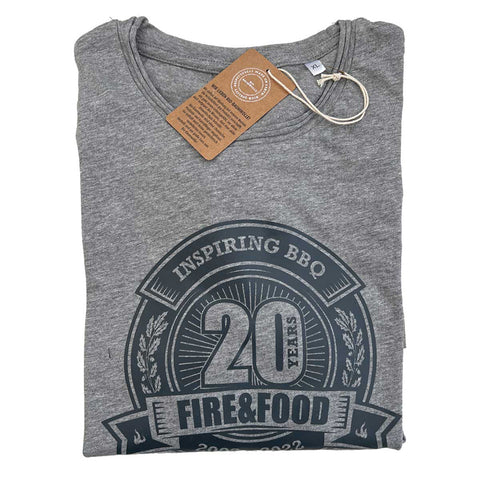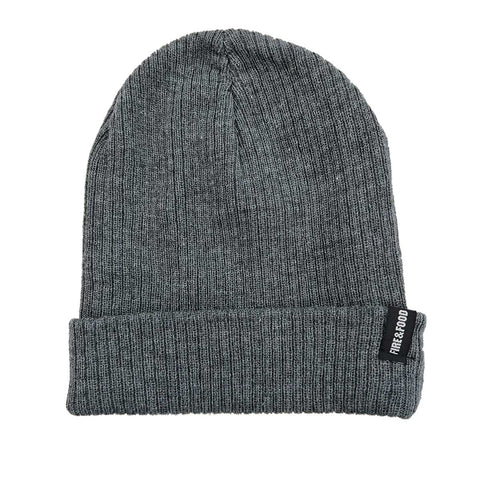Wagyu: luxury on four legs
Wagyu meat - especially when it comes from cattle from the Japanese prefecture of Hyogo and meets all the criteria to be named after the provincial capital of Kobe - is the most expensive type of beef in the world. "Wagyu" means "Japanese beef" and is considered a guarantee of finely marbled meat that is particularly tender and tasty. In Japan, cattle were mainly kept as draught and working animals. It was not until the Meiji period (1868-1912) that intensive contact with other countries and cultures began and so the traditional circumstances changed - including the culinary ones. Beef was no longer forbidden for religious reasons and became a modern food.
Those who could afford it at that time and who had a certain self-respect ate European food. The political opening of the country also made crossbreeding with foreign breeds possible for the first time, which were distributed among the individual Japanese regions and prefectures. This gave rise to the three main Wagyu bloodlines Kadeka (Tottori Prefecture), Shimane/Fujiyoshi (Okayama Prefecture) and Tajima (Tajijri Prefecture). Kobe beef is generally regarded as the highest quality Wagyu - but outside of Japan you can only get it from selected and licensed food retailers and restaurants and, depending on the cut, you can pay up to 600 euros per kilo. The term "Kobe" is - like champagne or Parma ham - strictly protected as a Japanese cultural asset and refers exclusively to meat from the Tajima-gyu cattle breed, which was produced, raised and slaughtered in the Hyogo Prefecture. However, it can only be declared as Kobe beef if it meets the quality criteria of the Kobe Beef Marketing & Distribution Promotion Association. So not every Tajima beef from the Kobe area is a Kobe beef.
The Who's Who
The Japanese protect their sacred cultural heritage and so it is still not permitted to export live animals or their genetic material. However, some Kobe cattle and genetic material were exported to the USA and Australia for scientific purposes in the 1970s and again in the 1990s. This resulted in the world's largest full-blood Wagyu herds in these countries, as well as in New Zealand and Canada. Their premium meat is in demand all over the world and forms the gene pool for European breeding. 100 percent "full-blood" refers to absolutely purebred animals that are registered in the herd book and whose origins can be traced back to Japan via the pedigree. This is a guarantee of being able to achieve top prices on the market - in 2015, at the first auction on European soil in Münsterland, which was still young in terms of breeding, a pregnant cow went under the hammer for 27,500 euros. What some fullblood breeders don't like at all: the meat from crosses between a fullblood Wagyu and another breed, e.g. Angus or Hereford, is also sold as Wagyu meat. This F1 cross is said to be 50 percent Wagyu - called "supermarket Wagyu" in Japan and the USA. If this and every other cross is repeatedly crossed with 100 percent fullblood, the F4 line produces 93.75 percent Wagyu, which is considered a "pure breed". But even if this line is crossed further, more than 99.9 percent cannot be achieved. Klaus Möbius, Chairman of the Wagyu Association Germany e. V., says: "Very few cattle are crossed in Germany. Mostly only for direct marketing. Even for a cross, a great deal of know-how is needed to find the optimal solution."
The first breeders began their work in Germany in 2006. They include Ludwig "Lucki" Maurer and his wife Stephanie. The self-confessed meat lover started breeding out of necessity so that he could take over his grandfather's farm and wake it from a deep sleep. He was encouraged in this idea by Wolfgang Otto (from Gebr. Otto Gourmet GmbH, editor's note), who convinced him of the good marketing opportunities of the "best beef in the world". His herd has now grown to over 60 animals. "We breed our Wagyus according to EU organic guidelines, which means without embryo transfer, but with natural mating and suckler cow husbandry, where the cow weans the calf itself," explains Lucki in an interview. And as a strong advocate of "nose to tail", sustainable and respectful use of the whole animal is a matter of course for him, even with his Wagyu: "I have now found a tannery to process the Wagyu skin into leather, and the leather is used to make belts." In his opinion, the best parts of the Wagyu don't always have to end up on the grill when grilling. His tip: "For C-cuts, preparation in the Sukiyaki style (a Japanese method of preparing beef that developed during the Meiji period, editor's note) can be combined fantastically with grilling on the plancha. To do this, simply slice the meat very thinly against the grain and briefly pull it over the hot plate with a little soy sauce and sesame oil. A dream..."
The Marquardt family runs a very successful conventional Wagyu farm in Schleswig-Holstein. At some point they also had to ask themselves how the farm could be restructured to ensure a livelihood for future generations. Both breeders - whether organic or conventional - are members of the Wagyu Association Germany, which was initially founded to make Wagyu eligible for herd book registration as a breed in Germany. The association also develops the breeding goal of the breed and supports its members in the exchange of information and experience.
The eDossier WAGYU MEAT: CUTS & RECIPES is available as a FREE download HERE.
You can find this delicious recipe for Wagyu Skirt HERE in our recipe database.
You can find this recipe for aspargus burgers made from Wagyu beef with smoked salmon HERE in our recipe database.
This also includes contact with scientific research institutes such as the Leibniz Institute for Farm Animal Biology in Dummerstorf. The institute is investigating why Wagyu cattle are so good at storing their fat intramuscularly, unlike other beef cattle breeds. "While the beef cattle breeds that are widespread today, of which around 50 breeds are bred in Germany, have been geared towards low-fat muscle meat for decades, Japanese cattle have been able to develop without such interventions. Wagyu meat has a fat content of 40 percent," explains Dummerstorf scientist Professor Steffen Maak. The muscle meat of Wagyu cattle is interspersed with fine-grained marbling, which loosens the connective tissue and makes the Wagyu steak much juicier and more tender. The intensive feeding with concentrated feed made from beets and corn and soybean meal in the last six months of their life, which lasts at least 30 months, also has a strong effect on the quality of the meat. According to the scientist, the meat also has a higher proportion of unsaturated fatty acids compared to other cattle breeds. The Dummerstorf researchers contacted the Kyushu University in southern Japan more than ten years ago to find out the differences between Kobe cattle and European cattle. The Wagyu breeds Japanese Black and Japanese Brown were examined in particular and compared with the Holstein cattle. "The differences were very large and clearly visible. The Wagyu muscles have many more cells in which fat can be stored. A comparison of the genetic potential showed that the Holstein cows are less able to do this when fed the same diet and kept in identical conditions and tend to pack the fat more under the skin and around the internal organs," says Maak. Maak's team is investigating whether genetic differences are the cause of this, using 2,600 genes that could be relevant to fat metabolism - it will certainly be years before all of these are decoded. The Japanese are using their collaboration with German scientists to gain knowledge about the production of high-quality meat through European grassland feeding – a more efficient use of resources is also necessary for Japanese cattle breeding.
Breeder wanted
Even though Wagyu breeding is still in its infancy in Germany, the experiences so far have been predominantly positive. However, more farmers are needed to meet the growing demand in this country. Top-class restaurants and the barbecue and event scene are not the only reliable buyers of Wagyu meat, but more and more consumers are also treating themselves to a piece of the noble animal, which took up two to three times as much space during its rearing and was allowed to live almost twice as long as a conventional fattening cattle. At some breeders, the Wagyus even receive a sophisticated wellness program with music, electric brush massages and free beer, as well as underfloor heating and drinking water at a comfortable temperature. Probably based on the Japanese model. Christoph Grabowski, master butcher and meat sommelier at Niggemann Food Frischemarkt in Bochum, has a historical explanation for the massages: "The Tajima cattle were originally kept as working animals in Japan. It was therefore in the farmer's interest to keep these valuable animals healthy for as long as possible. Therefore, the cow was massaged with straw every evening to clean it and protect it from parasites." Grabowski would also welcome being able to sell more Wagyu meat from German or European breeders - even if the US evaluation criteria were officially valid for this premium meat. In his opinion, the EU standard classification does not do justice to Wagyu quality: "If we were to apply the EU standard classification to humans, that would mean that bodybuilders are the most handsome men...", says the meat expert. Therefore, to provide better guidance when selling, butchers and breeders often already state the degree of marbling for Wagyu meat - either according to the American BMS (Beef Marbling Standard) or the Australian MS (Marble Score).
If you have now acquired a taste for it and would like to try a nice piece of Wagyu meat, you can find an overview map at the German Wagyu Association, for example, on which the individual member companies are listed. Many sell the meat directly from the farm. Or you can ask your trusted butcher whether you can buy the meat from him.
Alternatively, online retailers are also a good option.
Internet addresses about Wagyu:
www.wagyuverband.com
www.bio-wagyu.com
www.holstein-wagyu.de
www.wagyu-muensterland.de
www.niggemann-food-frischemarkt.de
www.gourmetfleisch.de
www.otto-gourmet.de
www.albersfoodshop.de
www.fbn-dummerstorf.de





















